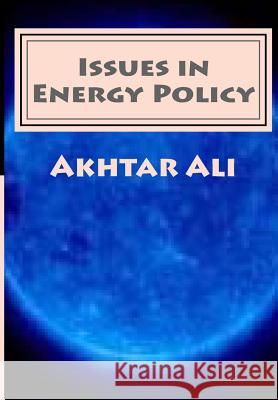Issues in Energy Policy » książka
Issues in Energy Policy
ISBN-13: 9781466224599 / Angielski / Miękka / 2011 / 502 str.
Pakistan is passing through an energy crisis has become more of a cliche. The crisis, however, is of such a magnitude that it cannot be allowed to continue the way other crises have become part of our national life. It has to be tamed or ameliorated as early as possible. The problem is that demand keeps increasing continuously with the increase in population and almost doubles itself in ten years and quadruples in twenty years. The lack of inaction may not be felt immediately, as has happened in the reign of last military regime. Supplies take longer times to build. Also unfortunately, the institutional and socio-political system has not and may not correspondingly progress and grow in capability to provide for the bulging demand. In the current decade, as much new electrical capacity (15-20,000 MW) may have to be installed as it has been done in the last sixty years. And it is not the electrical energy alone; there are demands of primary energies as well for house-hold, transportation and industrial and commercial sectors. This is certainly a challenge which will continue unabated. Supplies have to be provided at affordable costs, preferably lower or competitive with other countries. Pakistan has indigenous energy resources that can make it possible. The challenge can be met. Institutional and policy environment must be streamlined and fine-tuned to remove bottlenecks, attract domestic and foreign investment, and bring into play the market forces replacing fiat, command and political power. The purpose of this book is to examine in detail the underlying issues at overall and at more practical sub-sector level. We undertake a perusal of some of the major issues and problems here in this book in the following before reverting to the discussion on energy policy."
Zawartość książki może nie spełniać oczekiwań – reklamacje nie obejmują treści, która mogła nie być redakcyjnie ani merytorycznie opracowana.











